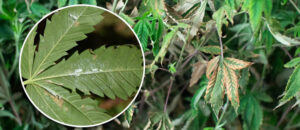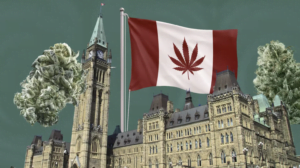THC (tetrahydrocannabinol) vs CBD (cannabidiol) are two of the most well-known and studied cannabinoids found in the cannabis plant. While they both interact with the body’s endocannabinoid system, they have distinct effects and properties. Understanding the differences between THC and CBD is crucial for consumers, as it allows them to make informed decisions about the cannabis products they use and their potential effects on health and well-being.
Chemical Structure and Psychoactivity:
The most significant difference between THC vs CBD lies in their chemical structure and psychoactive properties.
- THC: THC is the primary psychoactive compound in cannabis, responsible for the “high” or euphoric feeling often associated with cannabis use. When THC binds to cannabinoid receptors in the brain and central nervous system, it activates the brain’s reward system, altering perception, mood, and cognition.
- CBD: Unlike THC, CBD is non-psychoactive, meaning it does not produce intoxication or alter one’s state of mind. It does not bind strongly to cannabinoid receptors, and its interaction with the endocannabinoid system is believed to be more complex and indirect.
THC vs CBD Medical Benefits:
Both THC and CBD have demonstrated potential therapeutic benefits, albeit through different mechanisms of action.
- THC: THC has long been recognized for its analgesic (pain-relieving) properties and its ability to alleviate nausea and stimulate appetite. It is often prescribed to cancer patients undergoing chemotherapy to manage treatment-related symptoms. Additionally, THC has shown promise in managing conditions such as glaucoma and muscle spasticity in certain neurological disorders.
- CBD: CBD has gained significant attention for its potential medical applications. It has shown anti-inflammatory properties and may help manage pain, making it useful for conditions like arthritis. CBD has also been studied for its anxiolytic (anxiety-reducing) and antipsychotic effects, indicating potential benefits in managing anxiety disorders and certain mental health conditions. Furthermore, CBD-based medications have been approved by regulatory authorities for the treatment of certain forms of epilepsy, such as Dravet syndrome and Lennox-Gastaut syndrome.
Legal Status THC vs CBD:
The legal status of THC and CBD varies depending on the country, state, or region. In many places, THC is considered a controlled substance due to its psychoactive effects and is subject to strict regulation. On the other hand, CBD derived from industrial hemp, containing less than 0.3% THC, is often legal in many regions and may be more readily available for purchase.
THC vs CBD Side Effects:
Both THC and CBD are generally well-tolerated by most individuals, but they may have some side effects.
- THC: Common side effects of THC include dry mouth, red eyes, impaired memory and cognitive function, increased heart rate, and in some cases, anxiety or paranoia. These side effects are typically mild and temporary.
- CBD: CBD is considered safe and generally well-tolerated, with fewer reported side effects than THC. However, some individuals may experience mild side effects such as drowsiness, changes in appetite, and digestive issues.
Drug Testing:
Drug tests typically screen for THC metabolites, as THC is the compound responsible for psychoactive effects. Consuming products containing THC, especially in higher amounts, can result in a positive drug test. CBD, on the other hand, is not typically screened for in standard drug tests, as it does not produce psychoactive effects and does not cause intoxication.
THC vs CBD Entourage Effect:
The “entourage effect” refers to the synergistic interaction of multiple cannabinoids, terpenes, and other compounds found in the cannabis plant. Some researchers suggest that the combined presence of various cannabinoids, including THC and CBD, along with other plant compounds, may enhance the overall therapeutic effects of cannabis-based products. This concept has led to the development of full-spectrum and broad-spectrum CBD products, which contain a range of cannabinoids and terpenes but are low in THC.
In conclusion, understanding the differences between THC and CBD is essential for individuals considering the use of cannabis-based products for medical or recreational purposes. While both cannabinoids have potential therapeutic benefits, they have distinct effects, legal status, and considerations regarding drug testing. Consumers should carefully evaluate their specific needs and consult with healthcare professionals or knowledgeable cannabis experts to make informed decisions about the products they choose. Whether seeking relief from pain, anxiety, or other medical conditions, an understanding of THC and CBD will guide users towards the most suitable options for their well-being.





